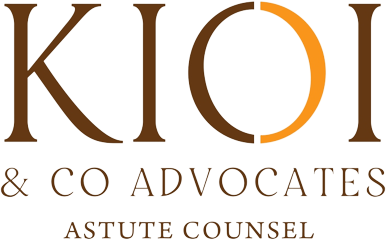- What is Estate Planning?
This is the process of anticipating and arranging for the disposal of an Estate. It can also be defined as the process of designating who will receive your assets and handle your responsibilities after your death or incapacitation. The main reason for estate planning is to reduce uncertainties in the administration of the deceased or incapacitated person.
An effective estate plan should consider how the estate will run in the event of the death or incapacity of the person. This is done by taking into consideration what you want to happen to your property upon your death, the financial well-being of your family, the degree to which probate can be avoided, and how to eliminate or minimize estate taxes.
There are various methods of estate planning and these include;
- Estate planning with wills – a will is the last will and the best form of estate planning as the will gives the person eternal freedom to distribute his/her estate however his/she likes.
- Estate planning using a trust – this is where you create a trust and transfer the ownership of all your property to it.
- Creation of a living trust – this is a trust that has three parties namely the creator, trustees and beneficiaries. You can determine when assets are passed on to a beneficiary; it doesn’t need to be immediately upon your death. A living trust is revokable when you are alive but is irrevocable when you die. The Income Tax Act (Cap 470) & The Stamp Duty Act (Cap 480) which have created exemptions in Capital Gains Tax and Stamp Duty for assets being transferred to the registered family trust,
- Power of attorney – this is the power given by a signor to a signee to manage the property on their behalf while alive. It is revoked upon death of a signor.
This article will focus on estate planning by making a will.
- What is a will?
A will is a document that expresses the last wishes and testament of the testator and is drafted by an advocate. Section 3(1), Law of Succession Act: defines a will as a” legal declaration by a person of his intentions or wishes regarding the disposition of his property after his death, duly made and executed by the Act’
If a person dies having made a will, they are said to be testate and regarded as a testator, and if they made no will, they are regarded to have died intestate.
- Importance of a Will
- Maintaining control over the property
A will enables the testator to maintain control over the property upon his demise – this is especially important for a person with a spouse and children
2. Enabling the deceased to appoint a personal representative of their own choice
The making of a will entitles a testator to appoint personal representatives of their own choice to administer their estate, this allows the testator to ensure that his estate will be well administered by people in whom he has confidence and who are probably well acquainted with the estate
- Administrative convenience
Administrators of estates derive their authority to administer the estate from the grant of letters of administration while the executors derive their authority from the will, thus, executors can administer the estate from the date of the deceased’s death and the grant of probate merely confirms their authority
- Full disclosure of the deceased’s property
The making of a will enables the testator to make a full disclosure of all the property they own or die possessed of y and/or assets that may be lost
- Avoiding disputes over the estate
By providing how and to whom the property is to pass upon the testator’s death, making a will avoids squabbles between heirs and survivors over the estate
- Benefiting persons outside the immediate family
It is only by making a will that a testator can benefit persons outside the immediate family (if he so desires)
6. Appointment of testamentary guardians
A will enables a parent who has minor children, if they so wish, to appoint a guardian or guardians to take parental responsibility for the children should he or she die while the children are minors.
- Information you may need to think about before preparing a will
- Who is the Executor(s) of your will: An executor is the individual who carries out one’s last will and testament, ensuring that the stipulations and wishes of the deceased are carried out properly. The best person to be an executor of a will is your spouse or someone that you trust to take care of your wishes especially when you have minor children to take care of.
- Guardians of your children. A guardian is a person or people (typically a couple or someone you and your partner trusts) who will take care of your child/children if you and the other parent pass away.
- List of the beneficiaries to your will. Could be your spouse, children, relatives, in laws, friends, colleagues or charity. You can amend or add on to a written will if you want to add or delete your beneficiaries.
- List of your movable or immovable assets that are rightly registered to you i.e land, CDS account (shares), bank accounts, investment policies/agreements etc and how they shall be shared among your beneficiaries. If a property is currently jointly owned by your spouse, then the property will automatically devolve to your spouse by operation of law but it is okay if you list them in the will. You can amend or add on to a written will if you purchase more assets. You can also gift your beneficiaries’ sentimental items you own. This could include books, jewelry, art etc.
- List of liabilities you have incurred and how they will be paid. You can amend or add on to a written will if you pay off the liabilities
- List of assets that you have a beneficial interest in: A beneficial interest is the right to receive benefits on assets held by another party. For example, if you are a dependent in a will or succession process and the same has not devolved to you as the registered owner OR you are in the process of purchasing property and the property has not been transferred to you, then it is advisable to list it in the will and how the asset will be shared as you continue to pursue the registration in your name. You can amend or add on to a written will if you acquire more assets that you have beneficial interest in.
- Witness of the will: For a will to be valid it must be signed by you. Your signature must be made or acknowledged in the presence of two witnesses. A witness who is also a beneficiary, should in turn have their signature attested to by 2 other additional independent witnesses (while failure to adhere to this will not affect the validity of the will, it will void the bequest to such a witness). If making an oral will, there should be a minimum of 2 witnesses.
In conclusion
Once a will is duly written the person is expected to execute it to make the will valid. Any person who wishes to revoke a will and make a new one can do so freely.
The law of succession grants the testator the freedom to revoke a will at any time. Once the will has been fully executed one must seal it and place it with someone you trust eg your lawyer. It is strongly advisable to hire a lawyer to draft a will however online wills are not invalid.
If you and you partner have different wills, it is beneficial to discuss and harmonize some of the mutual clauses e.g guardians of the children, what happens to properties jointly owned and a manager of the assets in case you jointly own the assets.




